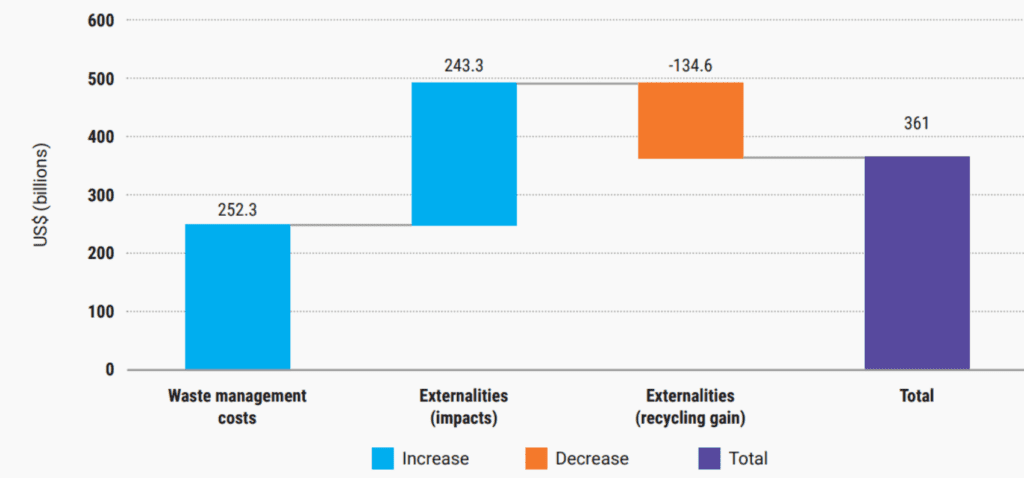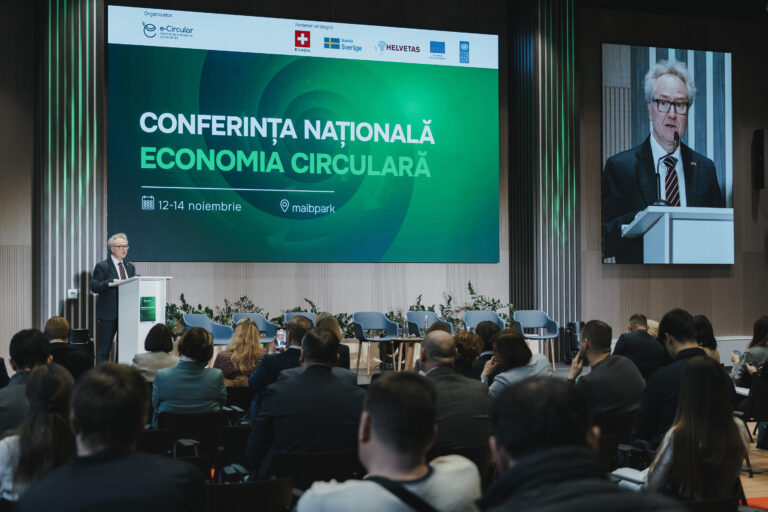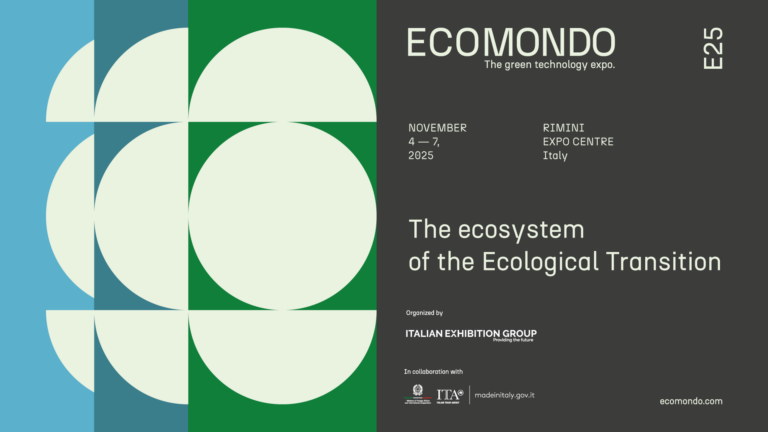We need a circular approach with as little waste as possible!
Details
Based on Global Waste Management Outlook 2024 (GWMO 2024), if the current waste management system does not change we expect an increase of 80 % in the amount of waste generated and a doubling of the costs related to its management by the year 2050. As a result, one of the key conclusions drawn from GWMO 2024 is the urgent need to move away from "Waste Management as Usual" to address the current global and national waste crisis.
The report considers two scenarios to replace the business-as-usual model. The "Waste under control" scenario envisages the stabilization of per capita waste generation rates after 2030 and the immediate implementation of measures to improve the coverage of waste collection services, the end of inappropriate disposal such as open burning and uncontrolled storage, and the mild expansion of efforts to recycle.
"Circular Economy" Scenario promotes a radical paradigm shift, integrating the necessary measures to substantially reduce waste generation and dramatically increase recycling rates.
In both scenarios, adopting a "waste as resource" perspective is imperative, requiring adaptation along the entire value chain, from raw material extraction to disposal, aiming to minimize waste and maximize reuse and recycling.
Despite ongoing initiatives, increasing the recycling rate is a significant challenge. Global recycling rates, averaging 19%, highlight that although recycling is often emphasized in guidelines, strategies and marketing, its widespread implementation remains elusive.
The numbers are clear:
- In 2020, global municipal solid waste (MSW) generation was estimated at 2.1 billion tonnes per year. Due to a combination of economic and demographic growth, this is expected to increase by 56% to 3.8 billion tonnes by 2050 unless urgent action is taken.
- 38% of municipal solid waste generated globally in 2020 was managed uncontrolled.
- Unsustainable patterns of consumption and production lead to increased amounts of waste to be managed, which in turn increases the direct costs to society.
The analysis for this report found that in 2020, managing DMS globally cost $252.3 billion. These direct costs do not include the externalities resulting from the management or lack of management of DMS and which are intrinsically linked to the triple planetary crisis of climate change, biodiversity loss and pollution, as well as human health and social and environmental justice. Respectively, dfigures suggest that in 2020 the total global costs to society of waste and its management (or lack of management) amounted to USD 361 billion.

Fig. 1. Direct costs, externalities and total costs of municipal solid waste management (2020) (2020 USD).
Expanding recycling capacity will require substantial investment in infrastructure. Regions with low recycling rates need to make significant investments to increase capacity and reach the rates envisaged in the more ambitious scenarios. However, the potential benefits, including the creation of circular economy jobs and the reduction of externalities, make it a compelling proposition. Therefore, the implementation of a "circular and waste-free" approach, as advocated by GWMO 2024, becomes the only viable solution to ensure a livable future in the Republic of Moldova as well.
It's a small step but with a big result Plastic July campaign and which is marked annually by more than 100 million people around the world. This initiative pleads for the abandonment/reduction of plastic products, especially single-use, difficult-to-recyclable ones that pose a risk to the environment and the health of the population. For this year we have proposed to continue various information and civic involvement activities. If you are interested in being part of the campaign, sharing your community and/or business experience with us, please make your voice heard!
Let's drive change together — I AM AN ECO-HERO BY FACTS!
Related articles
Cea de-a III-a ediție a Conferinței Naționale „Economia Circulară în Republica Moldova”, organizată în perioada 12–14
La data de 26 septembrie, Ministerul Mediului în parteneriat cu A.O. Centrul de instruire și consultanță
Unul dintre indicatorii Eurostat utilizați pentru a evalua progresul în atingerea Obiectivului de Dezvoltare Durabilă SDG
La Geneva, se negociază începînd cu 5 august un acord ONU împotriva deșeurilor din plastic. Blocajul:
Ne-am obișnuit să aruncăm, am uitat să reparăm, să reutilizăm și să prelungim durata de viața
Centrul de Instruire și Consultanță „E-Circular” anunță lansarea apelului pentru contribuții științifice în cadrul Conferinței Naționale
Reacțiile la studiul publicat recent de Agenția Franceză pentru Siguranța Alimentelor, Mediului și Sănătății Ocupaționale (ANSES)
De ani de zile, marcăm simbolic Ziua Mediului, vorbim despre reducerea poluării cu plastic, venim cu
Modelul economic actual este construit în mare parte pe un sistem liniar de tip „extrage-produce-aruncă”, în
A.O. Centrul de instruire și consultanță E-Circular în calitate de partener media anunță companiile interesate din










